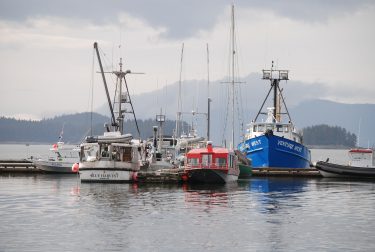
Fishing communities can survive ― and even thrive ― as fish abundance and market prices shift if they can catch a variety of species and nimbly move from one fishery to the next.
These findings, published Jan. 16 in Nature Communications, draw upon 34 years of data collected in more than 100 fishing communities in Alaska that depend on fishing for livelihoods, cultural traditions and daily subsistence. The University of Washington researchers found that communities that fished for many different species and had the ability to shift what they harvested, and when, were more resilient to unpredictable downturns in fish abundance and market prices than communities that put all their effort into only a few fisheries.
“This study is about starting the conversation about how communities can buffer themselves against unpredictable ecosystem changes in the future,” said lead author Timothy Cline, a doctoral student in the UW’s School of Aquatic and Fishery Sciences. “There is no reason why any community in the world that depends on renewable resources could not benefit from this approach.”
Read more at UW Today »
